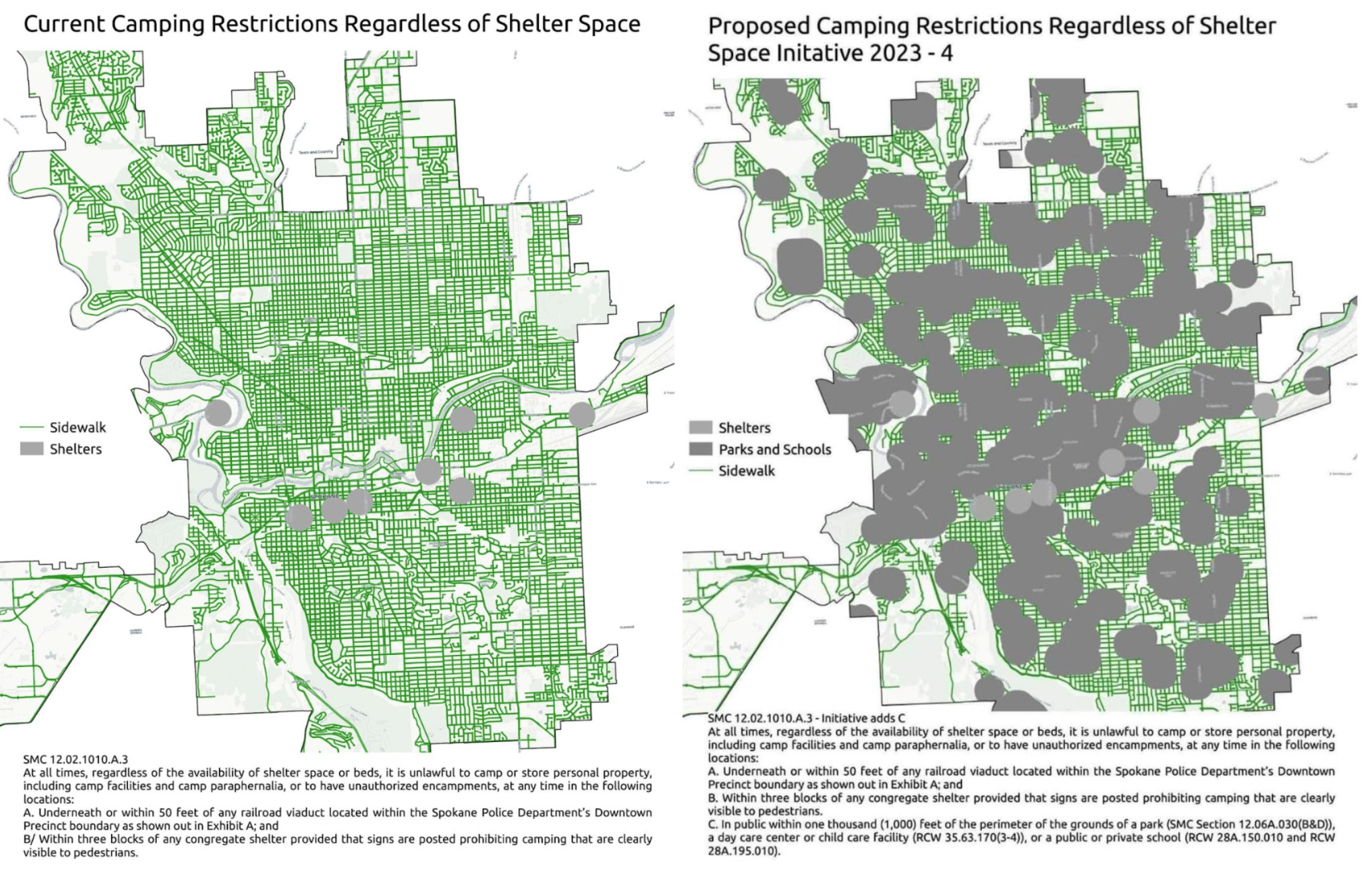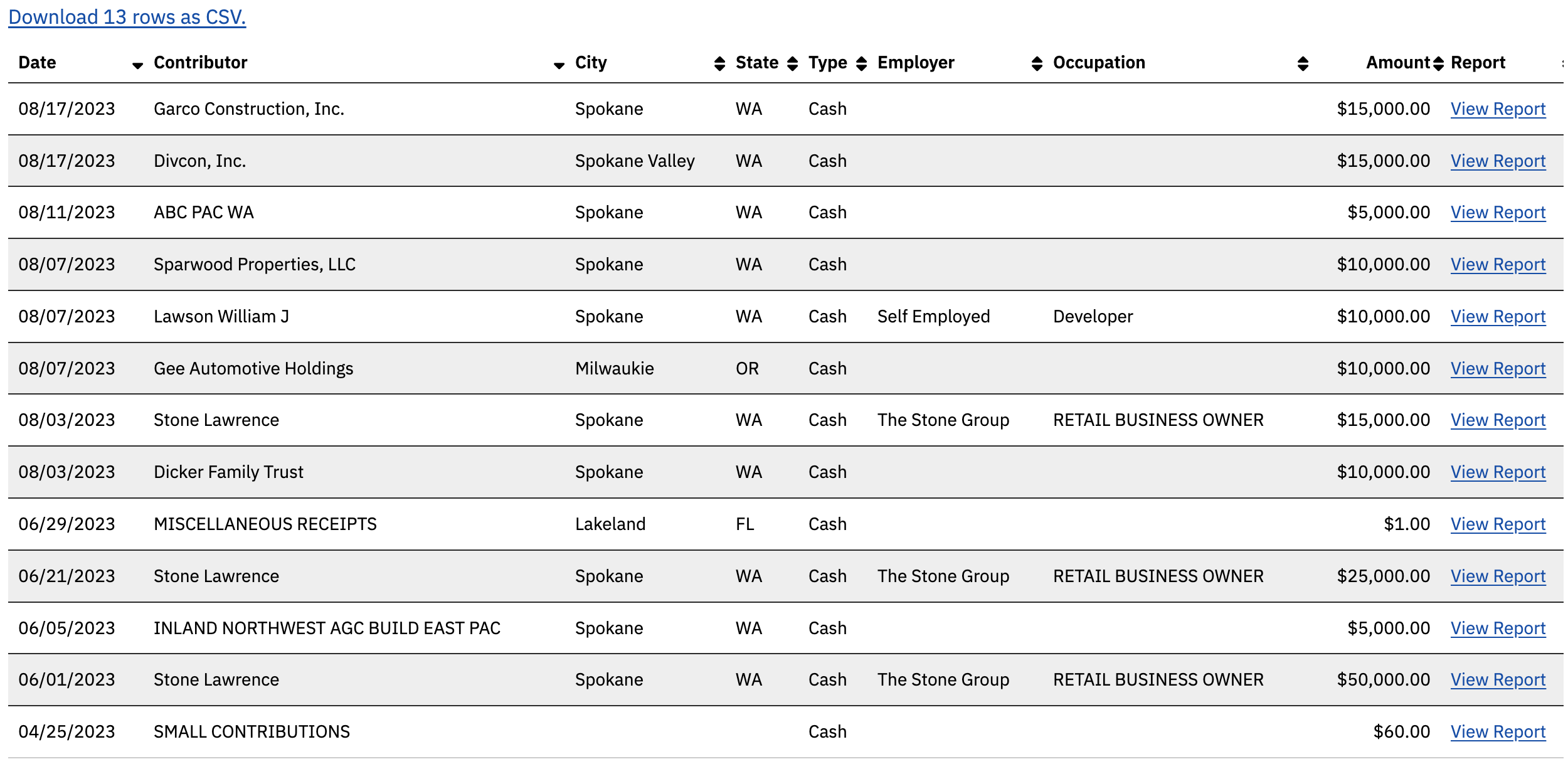I can’t unsee this
In these Substack posts I try to focus on the civics and politics of eastern Washington. In the Inland Northwest we have more than our share of militant, off-the-rails (often self-appointed, see P.S. below) “pastors” who think of themselves as expressing Christian values. The self-ordained pastor of On Fire Ministries and former Washington State Representative Matt Shea with his “The Biblical Basis for War” is a perfect example. Or how about Pastor Jason Graber of the Sure Foundation Baptist Church at 307 W Francis Ave in Spokane, who went briefly viral on social media last April with a video of a sermon in which he proclaimed that “parents of transgender children should be shot”. We’re familiar with Pastor Ken Peters of the non-denominational Covenant Church (the name at the time) on Princeton Ave and his “The Church at Planned Parenthood” used his his idea of Christianity as an excuse to harass people seeking health care at Planned Parenthood. Even Richard Butler of the infamous Aryan Nations compound near Hayden Lake claimed for himself the religious cover of the alliterative, white supremacist “Church of Jesus Christ–Christian”. Viewed from my Methodist upbringing these folk are using a twisted view of Jesus’ teachings to justify violent, hateful, political ends.
As far as I know none of the above-mentioned pastors and personalities claim any formal theological education or support within an institutional framework, but all claim they are personally channeling a higher power to justify what they preach. But there is a national figure with formal theological training, an ordained Southern Baptist Pastor, Mike Huckabee, who follows a related far right path.
Mike Huckabee is not only an ordained pastor, but he has stature in the national Republican Party. He was the governor of the State of Arkansas from 1996 to 2007. He ran for President of the United States in 2008 and 2016. His daughter, Sarah Huckabee Sanders, served for two years as Donald Trump’s White House press secretary and is now the governor of Arkansas.
Huckabee hosted a talk show on the Fox News Channel from 2008 to 2015. Since 2017 that same show, Huckabee, has aired on the Trinity Broadcasting Network, “an international Christian-based broadcast television network and the world’s largest religious television network.” As a formally ordained pastor he speaks for The Southern Baptist Convention, “the largest Protestant and second-largest Christian denomination in the United States”, which makes his presentation in the video below all the more sobering.
My Methodist upbringing and values rebel at Huckabee’s words: If Trump is kept from winning (or even running) by what Huckabee claims are President Biden’s “banana republic” tactics “…2024 will be the last election decided by ballots rather than bullets” . Decide for yourself if Huckabee’s words are a prediction or a not-so-subtly worded call to arms. Either way this is the sort of pseudo-Christian rhetoric that infects the ears of listeners to Republican right wing media both nationally and locally. Huckabee discards the basic principle of democracy. Either his candidate wins the election or the election is surely rigged. For Huckabee the proper response to such an election is “bullets” and the abandonment of voting. The outcome is pre-determined.

Ten or twenty years ago it wouldn’t have occurred to me that Mick Huckabee could make a statement like this, but this is what former governor Huckabee, the Southern Baptist Convention—and the Republican Party—have come to.
Keep to the high ground,
Jerry
P.S. Understand that the word pastor does not in itself confer any sort of institutional approval. The word pastor comes from the Latin word of the same spelling, meaning “shepherd”. Taking on the appellation “pastor” merely suggests that one wishes or has been able, by the power of one’s preaching and personality, to gather a loyal audience, a flock. Self-declared pastors like Matt Shea, Ken Peters, or Jason Graber claim the mantle of Christianity and personal inspiration from a higher power to justify what they preach. Presumably, each of them sincerely believes they are guided by God in their leadership. I am reminded by my Methodist upbringing of the Biblical warnings against “false prophets”. Whom did Jesus tell us to hate and shun? Whom did Jesus tell us to kill? What sort of arms training did Jesus recommend? Did Jesus encourage armed conflict in the face of his own impending crucifixion?
P.P.S. If you have any doubts as to just how far off the rails this has gotten check out Matt Shea associates Caleb Collier’s and “Pastor” Gabe Blomgren’s Church and State videos.

